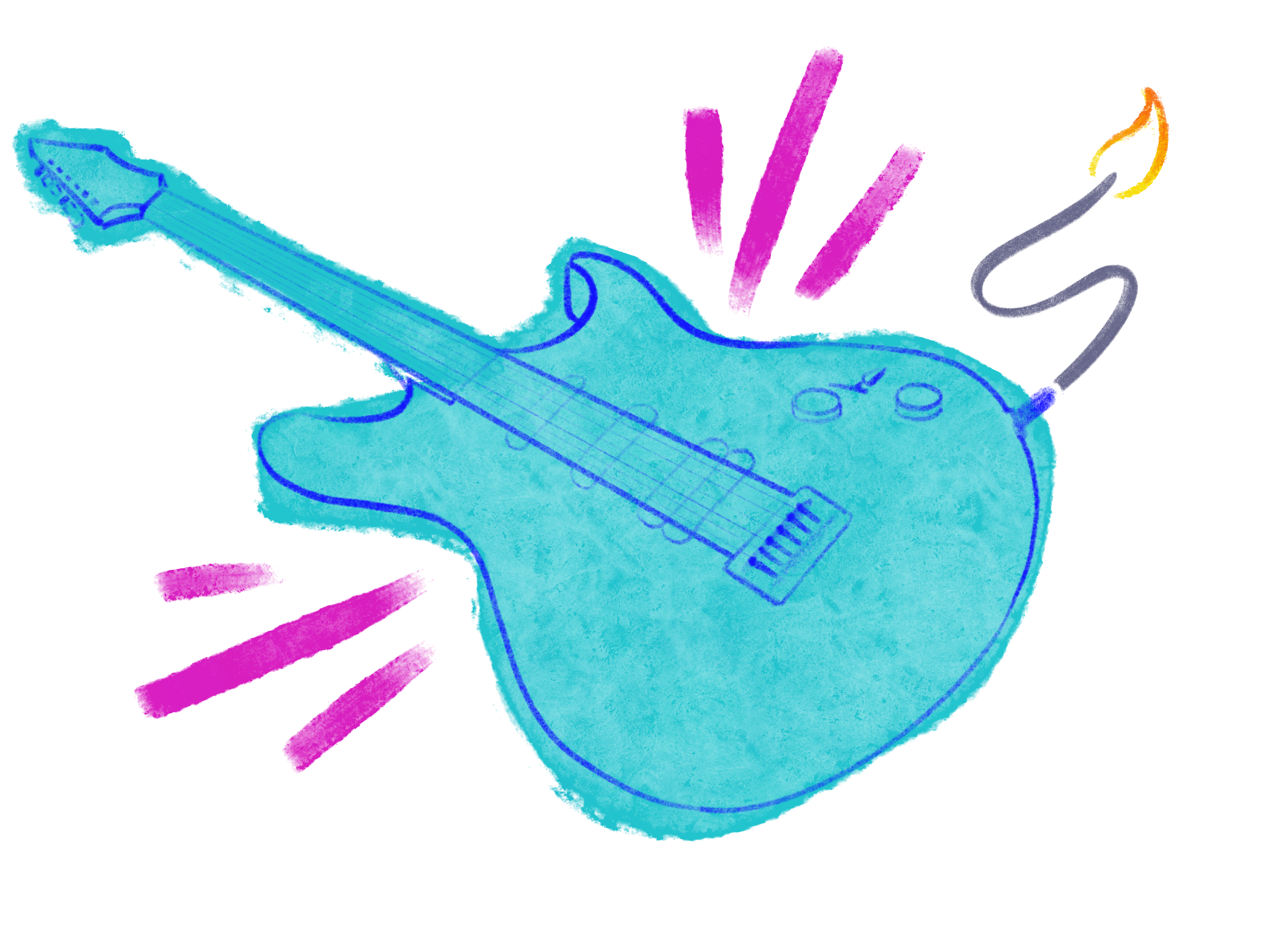
As a weird, nerdy teen I had a tendency to overshare and an overbearing urge to be popular among my classmates. Like many teens, I daydreamed that performing in the talent show would help me achieve that end. A regular old band geek, I was ignorant of—and fascinated by—the electric guitar. I judged it more dangerous and mysterious than my squawky off-brand alto saxophone.
I had only then discovered the consummate shredder Steve Vai on one of my late night YouTube binges. It wasn't his meticulous technique alone that impressed me. His windswept hair—achieved via the fan pointed at him just offstage—amazed my fledgling eyes. These bombastic displays of virtuosity convinced me then and there. For the talent show I would play guitar—no, not play, but become a guitarist. But without buy-in from one of my parents, I would have no guitar, and thus my dream would remain elusive.
Subsequently, on a weekend trip to visit my dad, opportunity knocked. You see, my dad’s side of the family are perpetual junk diggers. No roadside bookshelf, box of musty records, or bent bedside lamp goes unmolested. On this particular weekend, junk pile led to legitimate yard sale. I trailed my dad from the car to wander around the rows of disregarded affects. Then, among the "As Seen On TV" kitchen appliances and unopened self-help books, I spotted it. A shiny blue axe reared its head at me, planted upright against its amplifier.
My dad continued his crow-like hunt for some unknown treasure. I pined for the sparkly Ibanez while I devised my appeal. I knew my dad to be thrifty, almost to the point of finding large purchases contemptible. I shuddered to recall his firm embargo on the acquiring of new LEGO sets, when we had “tons at home.”
Despite my initial hesitations, I managed to muster up enough chutzpah to ask. Though I don’t remember my exact words, I imagine it came out something like, “Dad, would you—can—er. I think—I really like this guitar. Look at this guitar. It’s only $250.” My eloquence spent, I scrunched my face into an attempt at something cute or sympathetic. It wasn't an endearing look for my age, but as luck would have it, he agreed to buy it for me.
The way my mom tells the story, I was glued to my Gameboy™, then one day I brought home my guitar, and I was glued to that instead. This, incidentally, is one of the least embarrassing stories your mother can tell about you when you weighed 13 pounds at birth. Fast forward to 220 pounds, I cloistered myself to my room and plugged in.
At first I wasn’t so much learning the songs as I was flailing alongside them, in irregular time. I memorized the pentatonic scale, a five note stretch favored by beginners. I learned how to read tablature, the crowdsourced, imprecise, guitar-specific sheet music. I settled on a song, “Tender Surrender”, and learned the solo note by note. Piece by piece and with plenty of trial and error, I gleaned the rhythms from the tabs and video. Playing with the original track supporting me, I felt like a rock legend. In any event, my hair remained stationary, a peculiar clue that presaged what would happen next.
The talent show came, and two friends joined me on stage as a rhythm section: bass and drums, holding down the groove. As the lights went up, I slid into my best approximation of the opening melody, a smooth romantic line. Soon after we came to the middle section of the song, where the melody gives way to a fiery caterwauling blues riff. It was at that moment I realized I was losing my place.
Without the track behind me, and the expectant audience before me, I had a moment of grimacing oblivion. At home, if I missed a note, I could still hear the original lead guitar part and pick up where I left off. Here, I could feel the expectation of the room, and Steve remained elsewhere.
Then, something clicked, and I felt the groove again. I still had that pentatonic scale in my fingers. So, I leaned in and overused it, doing a sputtering caricature of the great artist. To my surprise, the audience hooted praise at us all the same. In reality I was the only one who knew I was missing notes (and sections, for that matter).
As the band came to a jumbled, but "final"-sounding end, waves of relief came over me. I darted offstage with glee and incredulity. I had failed, but only in achieving my own unrealistic expectations. While I wanted precise surgical rendition, the audience wanted authenticity and inspiration. It was at this moment I began to truly discern the interplay between performer and audience.